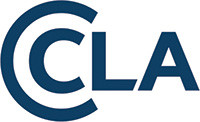
I have spent the last 25 years of my legal career pursuing (and very occasionally defending) claims of IP infringement, often copyright. In that time I have always been fascinated by what motivates those who infringe IP to do so. I know from discussions with clients like The Copyright Licensing Agency (CLA) that those engaged in protecting content from infringement consider that understanding the motivation of infringers is key to prevention. Or if not prevention, then at least mitigation of it. Very occasionally, I have the chance to engage with those who have infringed the copyright of my clients and I always take the opportunity to seek to glean their motivation for what they have done. With this in mind, I was delighted when CLA approached me to share my thoughts on the factors which influence IP and copyright compliance.
This paper considers the impact of having an ESG programme on the observance of copyright by corporates. To set the scene, I found the British Business Bank’s definition of ESG as ‘a collective term for a business’s impact on the environment and society as well as how robust and transparent its governance is in terms of company leadership, executive pay, audits, internal controls, and shareholder rights’ to be of real value.
The perception that ESG is just important for companies which are publicly traded has long since become dated. It should be a topic in all boardrooms up and down the country. In my mind, ESG incorporates a great deal of the ethos behind Corporate Social Responsibility (CSR) with the critical additional emphasis on environmental considerations. At the core of CSR and ESG is the need to have business practices which respect ethical values, comply with the law, and respect economic values and environmental responsibility.
Copyright and IP compliance should be an important part of the risk management practices of all businesses. Effective compliance programmes will involve corporates educating employees old and new on what they should do to observe IP rights and avoid inadvertent or deliberate infringement of IP rights. Inadvertent infringement of IP can come from a lack of understanding of which licences your business needs to have in place. This can be confusing, and it is important to get advice on IP licensing.
On a fairly regular basis, clients approach my team about correspondence received from the CLA. The most ill-informed clients, who have never heard of the CLA, will ask if it is a scam. Of course, it is easy to disabuse them of that misconception.
More typically, they will ask if this is something they actually need. As we now act for the CLA we are in a certain degree of a conflict in advising on this, but if we direct them to the CLA website it is pretty obvious that any organisation which copies from books, magazines or websites will need a CLA licence.
I consider compliance with the law, and intellectual property laws in particular, to be an essential part of corporate ESG policies. It is self-evident that misappropriation (or theft) of content created by authors and artists will bring with it many risks.
For publicly listed companies, being able to display strong ESG credentials will make them more attractive to the growing number of investment funds seeking to invest in companies which operate responsibly and ethically. For private businesses, strong ESG credentials are of increasing importance to stakeholders such as clients/customers and employees.
Typically, larger clients or customers will now require to see robust ESG policies and credentials as part of a tendering process. There are very considerable gains to be achieved through a company operating with respectable ESG values.
As ESG policies require companies to have consideration for the communities and markets within which they operate, paying for content which will incentivise those engaged in the creative industries seems obvious.
If not paid for the “fruits of their labour” then all society suffers when the financial incentive to produce new material is removed from content creators. I know many authors and artists are not primarily incentivised by money, but this will almost always be part of the picture, especially for those who depend on the income from their creative works for their livelihood.
What motivates infringement or compliance? How could complying with IP laws bring financial gain? How does compliance weave into ESG framework? The full-length article delves into these questions pertaining to ESG principles and explores the manner in which ESG policies should impact compliance within the realm of copyright and IP.
Read Colin Hulme’s article in full on the Copyright Licensing Agency’s website at bit.ly/46A5MOz














